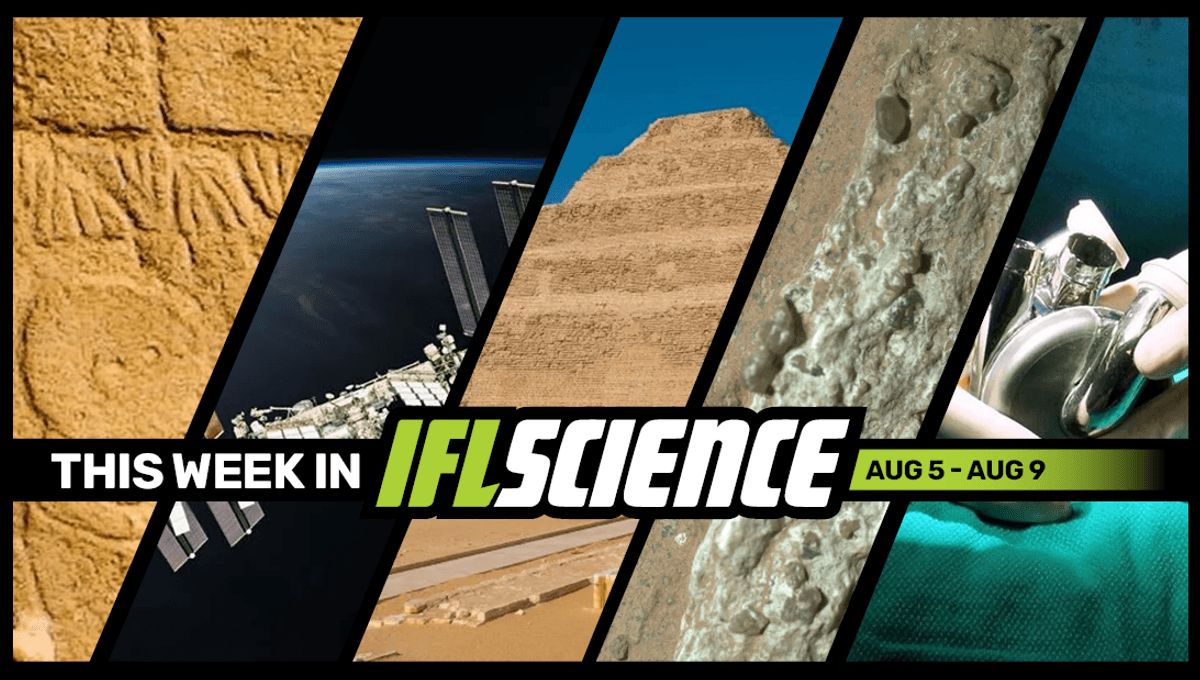
This week, the first-ever archaeological survey in space was carried out on the ISS, we investigated if the Egyptians really built their oldest pyramid with a hydraulic lift, and we explained why people are so excited about Perseverance’s “possible biosignature” discovery on Mars. Finally, we asked why we believe in urban legends like the Russian sleep experiment.
Subscribe to the IFLScience newsletter for all the biggest science news delivered straight to your inbox every Wednesday and Saturday.
“World’s Oldest Calendar” May Depict Catastrophic Comet Impact 13,000 Years Ago
A cataclysmic comet impact 13,000 years ago may have sparked the rise of civilization, according to the authors of a new study. The event – which many scientists believe never happened – may even be documented at the world-famous site of Göbekli Tepe, forming part of a series of carvings that the researchers say represent the world’s oldest solar calendar. Read the full story here
First-Ever Archaeological Survey In Space Carried Out On The ISS
Archaeology and outer space may not sound like they should mix outside of science fiction – but on board the International Space Station (ISS), the first-ever archaeological survey in space has been carried out. The research not only provides insights into how people adapt to live on the ISS, but it also shows how archaeology can be used to study remote and extreme locations. Read the full story here
Did The Egyptians Really Build Their Oldest Pyramid With A Hydraulic Lift?
The Egyptology world has had its feathers ruffled by a contentious new study that claims that a 4,500-year-old pyramid was built using jaw-droppingly sophisticated technology, including a spectacular “hydraulic elevator”. According to the authors, the mind-blowing system enabled enormous building blocks to be floated from the floor to the pyramid’s summit via a central shaft, like lava flowing upwards through a volcano – yet archaeologists remain unconvinced. Read the full story here
Why People Are So Excited About Perseverance’s “Possible Biosignature” Mars Discovery
Recently, the mission team behind NASA’s Perseverance Mars rover announced the detection of an exciting rock formation it had come across. Nicknamed Cheyava Falls, the arrowhead-shaped rock is the most promising find in the search for ancient life on Mars yet. There are structures visible in the rock that are consistent with being modified by microorganisms – it doesn’t mean that this is a discovery of life, but there is plenty to be excited about. Read the full story here
World First Implantation Of Titanium Heart Harnessing Maglev Technology
A titanium heart sounds like something made for the Tin Man in The Wizard of Oz – but for the first time, on July 9, it was implanted in a patient. The implantation of a total artificial heart (TAH) is a proposed solution to help people with heart failure who need a heart transplant and is currently seen as a bridge to heart transplant in severe cases of heart failure. Read the full story here
TWIS is published weekly on our Linkedin page, join us there for even more content.
Feature of the week:
The Russian Sleep Experiment And Why We Believe In Urban Legends
The Russian sleep experiment is often used as an example of the horrific experiments humans have carried out on each other – only, it never actually happened. But what makes stories like this so “believable”? Or, to put it another way, why do some stories become urban legends when others do not, and why do we accept them? Read the full story here
More content:
Have you seen our e-magazine, CURIOUS? It’s just turned 2! Issue 25 August 2024 is available now. Check it out for exclusive interviews, book excerpts, long reads, and more.
PLUS, season 4 of IFLScience’s The Big Questions Podcast has begun. So far we’ve asked “Why Are We The Only Surviving Human Species?”, “How Is Climate Change Impacting Our Health?”, “Is Evolutionary Biology Sexist?”, and “Can We Make Dogs Live Longer?”
Source Link: "World’s Oldest Calendar" May Depict Catastrophic Comet Impact, World First Implantation Of Titanium Heart, And Much More This Week